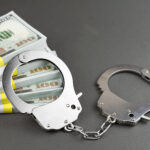The buzz came mostly by word-of-mouth but also from flyers circulated among New Jersey’s homeless Medicaid recipients and drug addicts. It told them where to get pain pills – and fast – prescribed by corrupt doctors who then bilked government health insurance out of millions while operating out of makeshift medical facilities, authorities said.
The doctors, joined by unscrupulous entrepreneurs, were the subject of a two-year report by the State Commission of Investigation released Wednesday that highlights illicit medical practices that it found to be fueling prescription drug and heroin abuse and distribution in the state.
The cases included one operation where a van picked up patients in Newark and took them to a medical center in a strip mall in Passaic. There, a doctor conducted cursory examinations and bogus diagnoses that resulted in prescriptions of painkillers, sedatives and cough syrup, authorities said. The report says the doctors told the patients they could either consume the drugs themselves or sell them on the street and then handed out a $10 gift card as thanks for coming in.
The doctor then billed government health insurance, netting $1.4 million, and funneled the money to associates he was working with who were linked to Russian organized crime, authorities said.
The doctor moved his operation several times around the state – with one facility becoming so overrun with drug addicts that a bouncer was hired to control the crowds, but he was later fired for doing drugs on-site, the report said.
In another operation, investigators found a northern New Jersey doctor bilked Medicaid to pay back hundreds of thousands of dollars he owed to members of the mafia, authorities said.
The report also describes a chiropractic office operating out of a seemingly abandoned building in Camden that had boarded-up windows and a battered front door in a normally desolate area of the city that it described as suddenly springing to life on Tuesdays.
The reason, the report says, was that Dr. Randy Zeid was in. During a 19-month period, an estimated street value of nearly $10 million of the narcotic drug oxycodone was prescribed.
But Zeid, in a letter to the commission included in the report, denied the allegations. He said the area was busier on Tuesdays because more doctors were in and there was no proof he wrote out more than 3,000 prescriptions for oxycodone from January 2010 to July 2011. And even if that were the case, Zeid said, it’s not an unusually high number of prescriptions.
Zeid wrote that the report “consists of exaggerated, unverified allegations intended to sensationalize and alarm, but which is short on facts which prove that anything wrong happened.”
Zeid’s lawyer said the doctor hasn’t been arrested or charged with any crime.
The report made several recommendations. It asks for stronger oversight of the medical community, particularly around establishing explicit prescription standards for physicians.
It also wants tougher financial and criminal penalties for offenders and better regulation of medical practice ownership and management. The report recommends creating a statewide task force to assist in investigations involving prescription pill and heroin cases.
SCI Chairman Patrick Hobbs said he hopes “the reforms we are recommending will give New Jersey an array of new and effective tools – tools it needs to counter this epidemic.”
Was this article valuable?
Here are more articles you may enjoy.

 Bridge Disaster in Baltimore Gets FBI Criminal Investigation
Bridge Disaster in Baltimore Gets FBI Criminal Investigation  Vintage Ferrari Owners’ Favorite Mechanic Charged With Theft, Fraud
Vintage Ferrari Owners’ Favorite Mechanic Charged With Theft, Fraud  California Chiropractor Sentenced to 54 Years for $150M Workers’ Comp Scheme
California Chiropractor Sentenced to 54 Years for $150M Workers’ Comp Scheme  Viewpoint: How Generative AI Enables a Brighter Claims Future in 2024 and Beyond
Viewpoint: How Generative AI Enables a Brighter Claims Future in 2024 and Beyond 